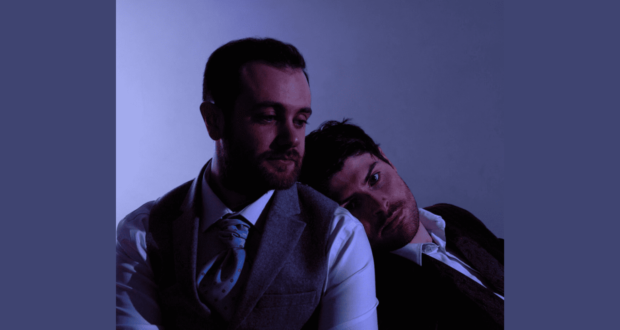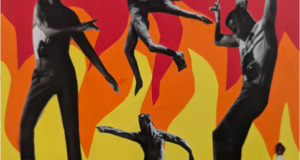Identity, surveillance, and forbidden love are all explored in this thoughtful play Summary
Rating
Good
I have a soft spot for queer period tragedies, and as a century-old mythic creature, I was particularly eager to see how When Atlas Met Tantalus would unfold. Directed by Tiff Milner and Emily Layton, the title suggests a meeting of monumental mythic figures which, intriguingly, turned out to be metaphorical.
The narrative is deceptively simple. Set in a secluded room of a mansion in Victorian England, Simon Christian‘s Edwin, freshly disengaged from his fiancée during a tumultuous dinner party, encounters the capricious and eccentric James Cartwright, portrayed by Lucas Livesey. James, the brother of Edwin’s former fiancée, initially persuades Edwin to keep him company as he waits for guests, ostensibly to help him avoid the family’s wrath.
However, the conversation soon hints at deeper layers; James suggests Edwin’s homosexuality might be the reason behind the broken engagement, which greatly angers Edwin, but also offers to introduce Edwin to his world of “country retreats” and exclusive parties. As their evening progresses, it becomes evident that James’s confident façade masks deep insecurities, and the dynamics of blackmailer and victim, friend and adversary, begin to oscillate violently.
The play cleverly explores themes of identity, surveillance, and forbidden love. The references to mythical figures, though overt, are fitting – Edwin as Atlas, burdened by societal expectations, and James as Tantalus, forever chasing elusive affection. This dynamic almost completely reverses by the play’s end. While their affection grows for each other, it avoids a cliché enemy-to-lovers routine, and the ending is fittingly tragic for a play named after two of history’s most tormented souls.
While the actors deliver convincing performances, enhanced by sharp dialogue, clever writing and a convincing set, the chemistry between them fluctuates quite a lot. The small venue limits their expression, particularly in climactic scenes where the acoustics create a distracting echo. The pacing also contributes to a sense of chaos, with numerous twists compressed into a one-hour runtime. A longer production might allow for a more nuanced exploration of their evolving relationship.When Atlas Met Tantalus thoughtfully explores how society’s punitive reactions to those who defy conventional norms of love echo the mythic punishments meted out by wrathful and unjust gods. This parallel underscores the enduring and cruel harshness that queer individuals face simply for feeling the “wrong” kind of love, drawing a poignant line through history to the present day.
Written by: Tiff Milner
Directed by: Tiff Milner and Emily Layton
When Atlas Met Tantalus has completed its current run at Bridge House Theatre.
 Everything Theatre Reviews, interviews and news for theatre lovers, London and beyond
Everything Theatre Reviews, interviews and news for theatre lovers, London and beyond



